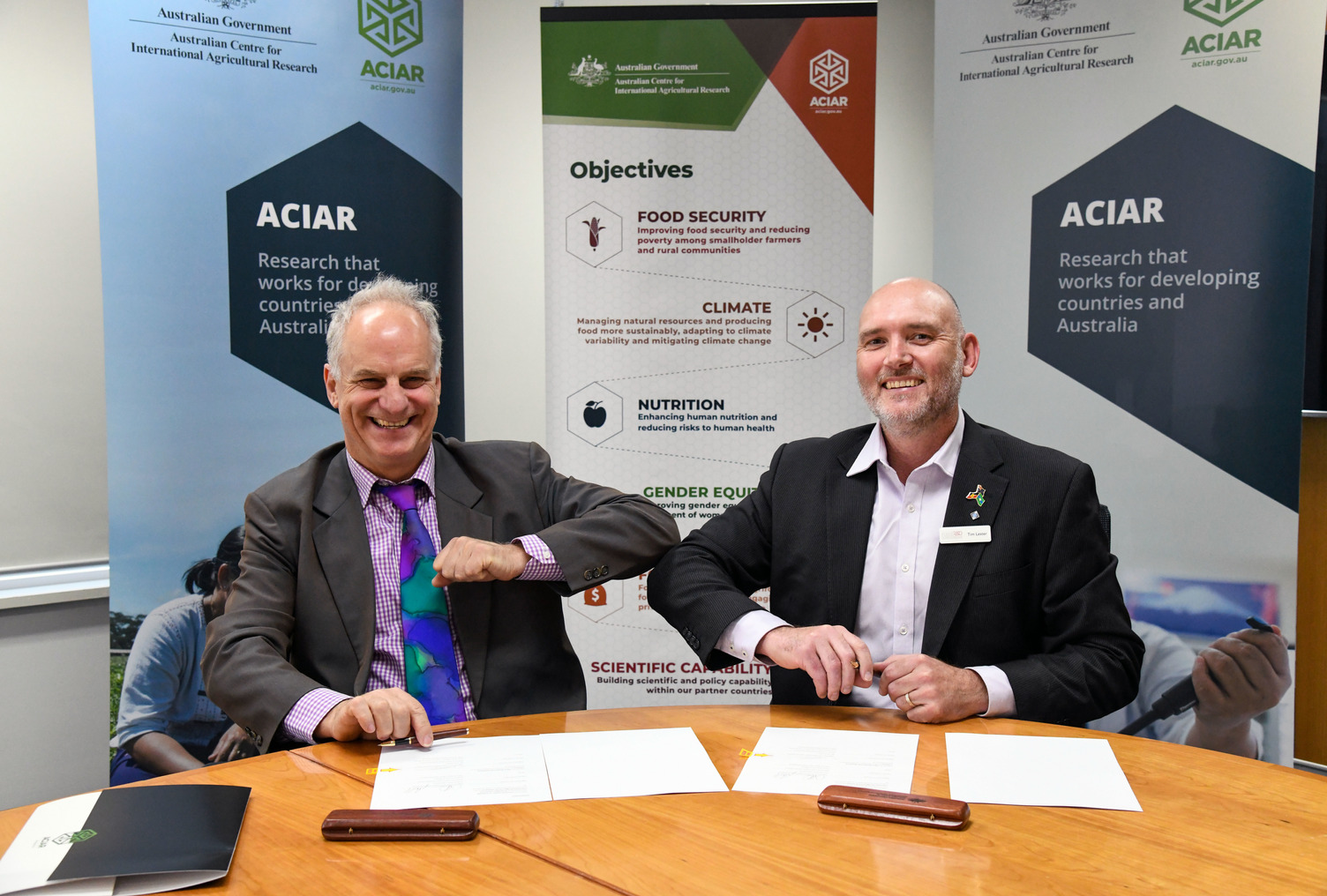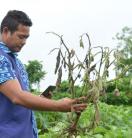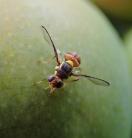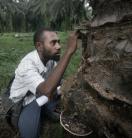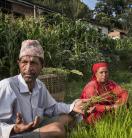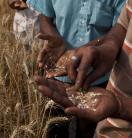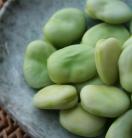New partnership to strengthen plant biosecurity
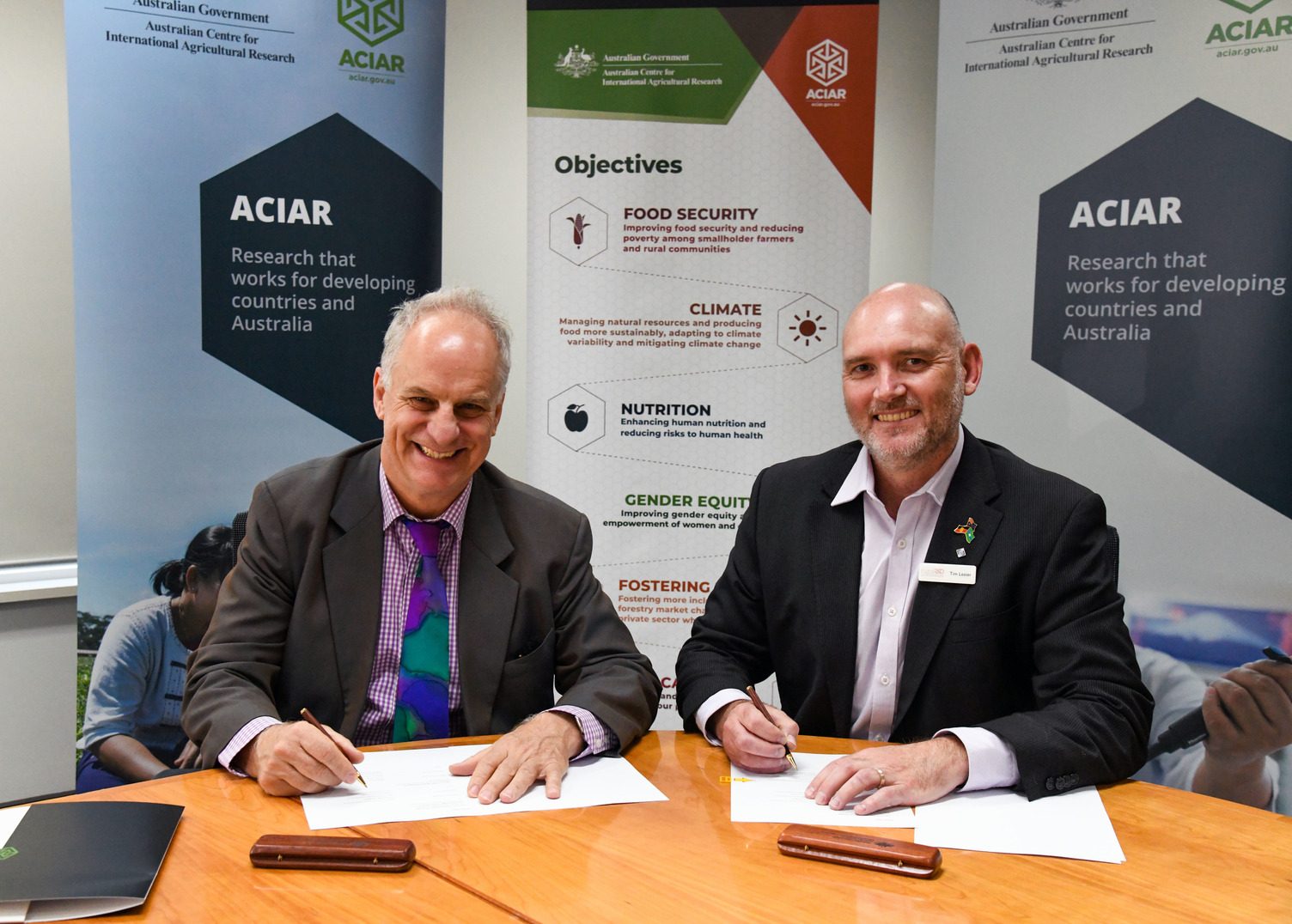
In the International Year of Plant Health, a new partnership aimed at strengthening plant biosecurity has been signed today between ACIAR and the Plant Biosecurity Research Initiative (PBRI).
Australia’s biosecurity system is facing continued challenges arising from global pests being introduced naturally or by cargo movement.
The recent arrival of the fall armyworm in the northern regions of Australia is a reminder that biosecurity remains a constant issue for Australian agriculture and regional communities.
PBRI Program Director Dr Jo Luck said, 'This pest was already established in South East Asia before making its way across the Torres Strait and into Queensland, Northern Territory and Western Australia and has now spread to New South Wales. It is a destructive pest of maize and sweet corn among other potential hosts, resistant to some pesticides, making it difficult and costly to control.'
Today’s signing of PBRI’s memorandum of understanding with ACIAR marks the beginning of a collaborative partnership, aimed at delivering plant biosecurity research of interest to both Australia and ACIAR’s partner countries.
The PBRI supports cross-sectoral investments in targeted biosecurity research, development and extension, that support Australian plant-based industries with valuable tools and expertise, to prepare for and respond to pests such as the fall armyworm and Xylella.
PBRI Acting Chair, Tim Lester, said 'Plant pests and diseases can devastate industries and destroy environments. Having strong biosecurity systems based on solid science is the best way to protect the things we hold dear.
'The challenges of plant biosecurity are not unique to Australia, but Australia is uniquely placed to inform the development and implementation of practical and effective biosecurity systems in other places based upon our long history of investment in research and development.
'Working with colleagues like ACIAR in Australia, B3 in New Zealand and EUPHRESCO in Europe gives us a way to share our knowledge, and to learn from the experiences of others so we can continue to improve here at home.
'On behalf of the PBRI, I’m proud to be signing the MoU with ACIAR today, and excited to see what we can achieve by working together.'
ACIAR CEO Professor Andrew Campbell said, 'Effective biosecurity is underpinned by good science. The research ACIAR invests in provides Australian researchers with the opportunity to work throughout our region to develop diagnostic, surveillance and management capabilities before pests and diseases reach Australian shores.
'ACIAR is currently investing more than AUD$26 million in plant biosecurity research across 14 projects in the Indo-Pacific region. We welcome the opportunity to work closer with Australia’s RDCs and regional partners in New Zealand through this important initiative.'
ACIAR works closely with countries in Africa, South East Asia and Pacific nations that have plant industries in common with Australia, such as horticulture, forestry, maize, and rice.
Through ACIAR investments, Australian scientists use their valuable knowledge for the benefit of partner countries, while at the same time learning about pests and diseases that have yet to reach Australia, and contributing to solutions that meet Australia’s own agricultural challenges.
The new partnership between ACIAR and the PBRI will lead to research projects focused on understanding the biosecurity threats in neighbouring regions that will inform preparedness and prevention programs in Australia.
Experience and knowledge will be shared between neighbouring countries, aimed at reducing the risk of the damaging consequences of biosecurity threats to agriculture and the environment in Australia and across the region.
PBRI Program Director, Dr Jo Luck said, 'I am looking forward to discussing research priorities on pests of common interest and building capacity together in plant biosecurity to strengthen our knowledge networks.'



